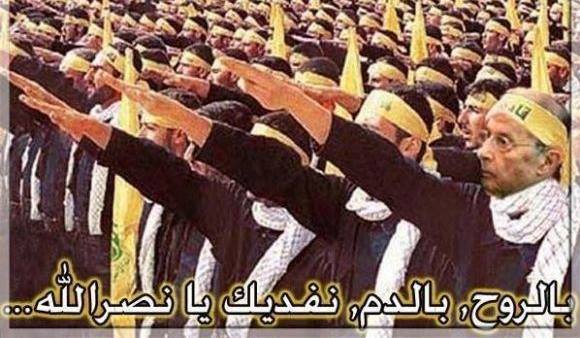The Middle East, Syria, Iraq: Implications of the Iran Nuclear Deal
Samir Altaqi/Esam Aziz/Middle East Briefing/July18/15
The Iran nuclear deal will cause no qualitative change in the dynamics of the Middle East regional crisis. The change expected will be quantitative in nature. The wars in the region will intensify, the warring parties will become even more violent and the chances of ending this crises will be dimmer.
The psychological impact of the deal should not be taken lightly. It is usually translated into concrete and active traction on the ground. The Iranians and their proxies in the region will receive a substantial boost. The deal will appear to them as a victory over the “Great Satan”. Now, it will be, for them, the turn of an “easier” victory over the “smaller Satan”, the Arab countries. The preparation for that will come in the usual deceptive forms of “peace calls” to the Arabs and very conciliatory speeches by Iranian leaders. Just the same as confirmations were thrown everywhere before that no one in Iran ever thought of the nuclear bomb and that such a bomb is un-Islamic. One wonders why then was all this fuss.
Tehran’s aggressivity and audacity will increase after the nuclear deal. We will examine here the expected consequences of the deal in the Middle East within the next few years:
– Nuclear proliferation: Though we are familiar with the views that underestimate the risk of proliferation of potentially military nuclear programs in the region, we expect that several regional parties will head in this direction. Arab countries understand that the deal did not, in any realistic terms, deprive Iran of its military nuclear capabilities. It merely froze part of Tehran’s rush to make the bomb. At any given moment in the future, if not now already, Iran will be a de facto nuclear country. No spinning or linguistic skills can disguise that. It was a matter of months, if not weeks, for the Iranian to assemble their bomb. Now, they froze the assemblage of the bomb just for some time until they fortify their defenses. But the research labs and the whole infrastructure is still there.
The Arab countries are determined to use the window of the ten to fifteen years to build their own nuclear programs, infrastructure and skills. We will soon see that happening.
– Bilateral US-Iranian relations: The assumption that Tehran will pursue a “friendly” policy regarding US regional strategy does not seem to be supported by facts on the ground. Iran’s perception of its regional role is that of a regional superpower. It behaves already as such. Supporting Bashar Al Assad in Syria without reservations, creating its own militia in Iraq, aiding the Houthi rebels in Yemen in toppling the legitimate government there and looking at Hezbollah as an extension of the Islamic Republic in Lebanon, all these policies go against the official US stand on these accounts.
Furthermore, Tehran does not look at its role in political terms. Rather, it writes it in sectarian language. For example, Iran did not interfere in Libya. The reason is that there is no Shia community there. It interferes in Bahrain however, because there is such a community there. Speeches about supporting the “mostazafin”, or the weak and oppressed communities appear only wherever there are Shias.
In that context, the regional “superpower” role Iran claims for itself is defined in a specific way. First, it will always do its best to build bridges with the base that it claims to defend, the Shias, by virtue of the mentioned definition, hence pushing the Middle East further into the abyss of sectarian wars. Second, its policy towards the Sunni Arabs will be blackmailing and threatening, or worse – asymmetric wars, as we already see. The Sunni Arabs are after all Sunnis. They cannot be infiltrated by a force that defines itself in different sectarian terms.
As for its relation with the US, there will be no valid reason for Tehran to let the Americans challenge its role as “the” regional superpower. The Iranians dream of the day when the US has to knock on their doors and ask for permission to do anything in the region, looks to be closer. That is already happening in Iraq. But the Iranians want it to be the rule in the whole region.
The US considers Hezbollah a terrorist group. It said it wants Assad out. It said it wants to arm Iraq’s Sunni tribes to fight ISIL. All this was met by a called NO from Tehran. The US swallowed its pride and ran to give the Ayatollahs in Tehran a reward by lifting the sanction in return for merely freezing their nuclear activities. Do we expect that Iran will “allow” the US to get what it wants now, when it refused to give it while under sanctions?
– US relations with its regional allies: Already, Iran’s Iraqi militia, called the Popular Mobilization Force (PMF), threatened to kill American soldiers in Iraq if they detect that the US is arming the Sunni tribes to fight ISIL.
For the PMF and their masters in Tehran, it is the Shia that should control central and west Iraq, not the population of that region and certainly not the Americans or their allies.
In Syria, both the US and Russia have been examining political solutions that ends or shortens the rule of Assad. The reason is clear. Assad cannot rule a country where he killed 300, 000 of its population, caused the displacing of almost half this population and destroyed most of it. Yet, only Tehran says no. The reason is that Assad has become a prisoner of his dependence on Tehran. He has been an ally by choice before. Now he is an ally by necessity. And that suits Tehran better. He also is Iran’s bridge to Hezbollah.
In Lebanon, Hezbollah is a state within the state. Talking about a sovereign Lebanese State now is meaningless. The military force of Hezbollah is far greater than that of the National Army. The pretext of Iran’s continued support for Hezbollah, which is of course a Shia sectarian force, is fighting Israel. But Hezbollah fights the Syrian people now, not Israel. The reason is that Iran told Sheikh Hassan Nasrallah to enter Syria in order to defend its assets there.
In Iraq, the project of turning PMF into an Iraqi Hezbollah is in process. In Yemen, a Houthi Hezbollah is under construction. Why would anyone think now that Iran will be more flexible with the US or the Arabs? What we will see is certainly the opposite.
Tehran’s regional policy: Iran, drunk with its “victory” over the “Great Satan” and blinded by the arrogance of power, will not realize that its Middle East project is ultimately limited by realities. Tehran cannot win in Syria however long the war continues. Hezbollah could not gain in Zabadani despite the resources it poured there. Assad cannot win Ghota. His forces can hardly defend themselves in their part of Aleppo. The war in Syria will continue for decades to come.
Lebanon is boiling and can explode anytime. This country may be heading to another civil war.
In Iraq, the idea of Shia forces controlling Sunni land is absurd. The US faced the tough choice of either to assist the Shia PMF to defeat ISIL or to stand down. Some plastic surgeries were made to make the PMF look more “national” in order to give the US a face saving argument, even a thin one. It was a face lifting for a face saving. Washington took the offer.
Yet, this is not the right way to really defeat ISIL. Shias’ control over Sunni land will produce another Sunni armed group, hopefully a little more civilized, to fight subjugation on the hands of overtly sectarian forces that lynch Sunnis when there is no body watching. The war in Iraq will continue for decades to come.
Does this look like exaggeration? Well, how would it have sounded to anyone five years ago if he heard a prediction that there will be civil wars in Syria, Iraq, Libya and Yemen, plus a brewing one in Lebanon? Does it sound like over suspicion of Iranian intentions? Well, it is already happening in the region. We see it every day already. Reality does not help the naive, or those who pretend to be.
If what we see in the Middle East now is a storm, the region will be heading to a hurricane. By signing the deal and normalizing relations with Tehran, the US ran from the bees to the hyena den. It will pay a price later. But the burden will fall on the shoulders of those who stood by the US in all times.
Well, congratulations everyone for a great victory. Enjoy it. The Middle East will not. Unfortunately.






















